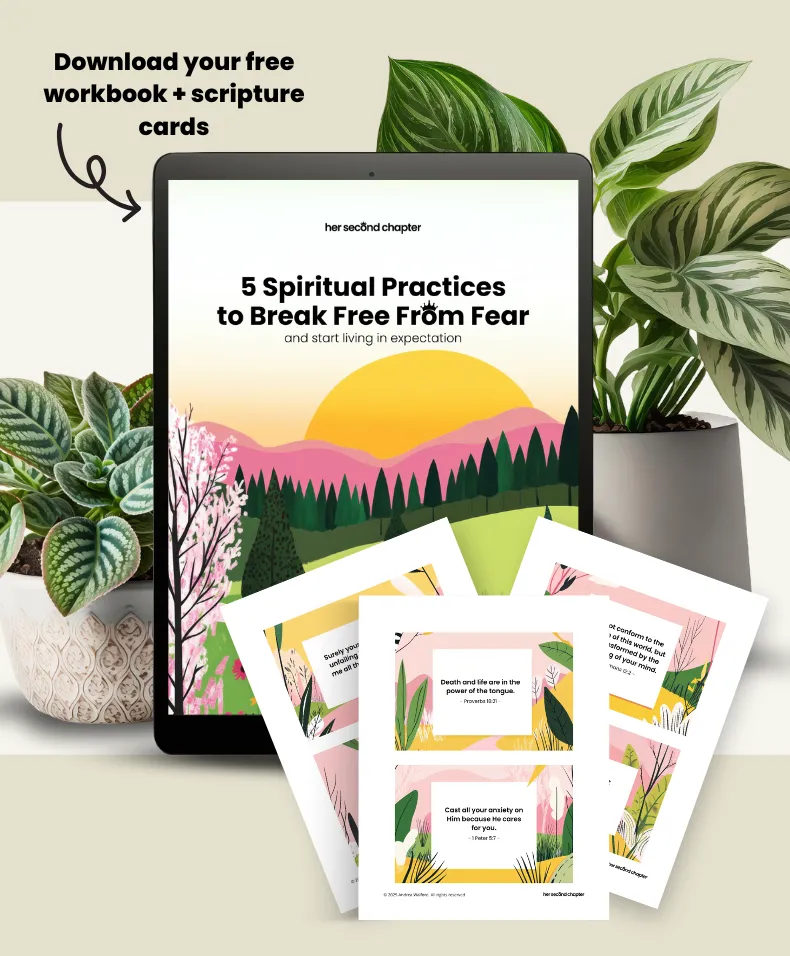We know God is all-powerful.
We know He holds the universe together.
We know He sees everything.
But here’s what we sometimes forget:
He sees you.
Not just in the big moments—
But in the quiet ones.
The overlooked ones.
The ones you tell yourself aren’t “worth” bringing to Him.
And yet…
If it matters to you, It matters to God.
Not because the thing is big—
But because for Him, you are.
If God Cares About Sparrows, He Cares About You
Sometimes, we assume God’s attention is reserved for the sacred, the serious, or the spiritually significant.
But Jesus made it clear:
God is not just watching the headlines of your life.
He’s aware of the smallest footnotes.
One day, Jesus turned to His disciples—
0rdinary men facing extraordinary pressures—
and spoke words that still echo in every heart that’s ever wondered,
“Does God really see me?”
“Are not five sparrows sold for two copper coins? And not one of them is forgotten before God.
But the very hairs of your head are all numbered. Do not fear therefore; you are of more value than many sparrows.”
— Luke 12:6-7 (NKJV)
Can you feel the tenderness in those words?
Jesus isn’t giving a lecture.
He’s giving reassurance.
In a world full of threats, noise, and fear—
He anchors His followers in this truth:
You are known.
You are noticed.
You are not forgotten.
Let’s pause here.
And look closer.
God Doesn’t Miss a Thing: What Jesus’ Words Reveal
Jesus could have said, “God sees you,” and left it at that.
But instead, He gave examples.
Visuals.
Details so specific we can’t miss the point.
He talks about sparrows—
tiny, ordinary birds.
Insignificant by the world’s standards.
And He says, “Not one of them is forgotten before God.”
The word He uses for “forgotten” is rich with meaning.
In Greek, it’s epilanthanomai (ἐπιλανθάνομαι), which means to overlook… neglect… or fail to notice.
Jesus is saying…
Not one sparrow slips through the cracks.
Not one flutter of their wings escapes the Father’s gaze.
Then He turns to something even smaller:
the hairs on your head.
He doesn’t say “He knows you have a lot of hair.”
He says every single strand is numbered—
arithmeō (ἀριθμέω) in Greek.
This isn’t a guess or an estimate.
It’s a precise count.
An itemized list.
An intimate awareness.
The ones that fell out this morning in the shower?
He knows.
The new ones growing in?
He sees them too.
The gray ones you’re trying to hide?
He’s counted them, and He still calls you beautiful.
This isn’t poetry.
It’s intentional theology.
Jesus is showing us what God is like:
Not distant.
Not general.
Not distracted.
But detailed.
Personal.
Present.
A God Who Sees—Then and Now
Jesus didn’t invent this image of a caring, attentive God.
He revealed what had always been true—
but so often forgotten.
Long before sparrows and numbered hairs,
God made Himself known to His people by name.
One of those names?
El Roi—The God who sees me.
Spoken by a woman named Hagar.
A servant girl.
Abandoned. Pregnant. Alone in the wilderness.
And yet…
God saw her.
Not just her situation.
Her.
And she said,
“I have now seen the One who sees me.” (Genesis 16:13)
Later, King David would echo the same truth:
“You have searched me, Lord, and You know me.
You know when I sit and when I rise;
You perceive my thoughts from afar.
Before a word is on my tongue,
You, Lord, know it completely.”
—Psalm 139:1–4
Every thought.
Every word.
Every moment.
Seen.
And not just the highlight reel.
David continues:
“All the days ordained for me
were written in Your book
before one of them came to be.” (Psalm 139:16)
That means…
Your ordinary Tuesday.
Your frustrating afternoon.
Your silent tears at midnight.
Already known.
Already held.
The Lie That Says “This Is Too Small for God”
Maybe you’ve never said it out loud,
but you’ve probably felt it.
That hesitation.
That inner whisper:
“This isn’t important enough to pray about.”
“God has bigger things to worry about.”
“I should be able to handle this on my own.”
It sounds like humility.
But it’s not.
It’s a distortion.
A subtle, sneaky lie about who God is.
Because underneath it is the belief that:
- He’s too busy
- He’s task-focused, not relational
- He only shows up when it’s serious
- He loves you broadly, but not deeply
- He’ll tolerate your needs, but not delight in them
But the Jesus of the Gospels?
He shatters that picture.
He doesn’t just heal crowds—
He stops for the one.
A woman bleeding for twelve years—unseen, unspoken, unnoticed—
He turns to her and says, “Daughter.” (Luke 8:48)
A blind beggar—loud and disruptive—
The crowd tries to quiet him.
But Jesus stops. Listens. Restores. (Mark 10:46–52)
A tax collector—hiding up in a tree.
Jesus doesn’t wait for him to come down.
He calls him by name. (Luke 19:1–10)
And after the resurrection—when Peter is ashamed and unsure—
Jesus meets him with breakfast on a beach. (John 21:9–13)
Not a sermon.
Not a rebuke.
A meal.
Because God isn’t just after your worship.
He wants your heart.
Your attention.
Your trust.
So when you wonder…
“Does God care about my looming deadline?”
“About the stress in my chest I can’t quite explain?”
“About my kid’s outburst at bedtime?”
“About this restless ache I don’t know how to name?”
The answer—
every time—
is: Yes.
If it touches you, it touches Him.
From Head Knowledge to Heart Belief
Knowing this is one thing.
Living it is another.
You can nod along.
You can highlight the verses.
You can quote them to others.
But until this truth sinks from your head into your heart—
it won’t anchor you when life feels heavy.
It won’t quiet the questions in the dark.
It won’t draw you into the presence of a God who delights in you.
And that’s exactly what the enemy wants.
He doesn’t have to convince you God isn’t real.
He just has to convince you God is distant.
Uninterested.
Unavailable for the ordinary.
That’s how discouragement creeps in.
That’s how spiritual weariness takes root.
But there’s a way back.
And it’s not complicated.
It starts with a shift—
not in your behavior,
but in your posture.
Let the Truth Take Root in You
Here are three gentle ways to move from knowing God cares… to living like it.
1. Confess What’s True
Whisper it aloud.
Write it in your journal.
Speak it over the smallest moments of your day:
“Father, You care about every part of my life—
even the parts I’ve been tempted to minimize.
I won’t brush them aside anymore.
Because if it matters to me, it matters to You.”
2. Catch the Self-Dismissal
Listen for the quiet minimizing language:
“It’s fine.”
“It’s not a big deal.”
“I should be over this by now.”
When you hear those thoughts rise up—
pause.
Breathe.
And gently ask:
“Am I dismissing something You want to meet me in?”
God doesn’t need your pain to be “big enough” before He draws near.
He’s already close.
You just need to open the door.
3. Let Scripture Reshape Your Reflex
“Cast all your anxiety on Him, because He cares for you.”
—1 Peter 5:7
Not just the big ones.
Not just the spiritual ones.
All.
“The Lord is near to the brokenhearted…”
—Psalm 34:18
Not eventually near.
Already near.
Right now.
In this moment.
In the tension you can’t explain.
In the longing you’re tired of naming.
He’s there.
And He’s listening.
How to Practice Living Loved in the Details
Let this truth shape your rhythms.
Not in a rigid, religious way—
but in a relational, moment-by-moment way.
Here are three gentle ways to live like you’re loved in the little things:
1. Talk to God About the Small Stuff
Not just in emergencies.
Not just during morning devotions.
But in the middle of laundry.
While choosing a salad dressing.
As you browse a bookstore or sit in traffic.
Not because He needs your input—but because He wants your company.
That’s what love does.
It shares.
It brings the other person into what would otherwise be ordinary.
Your day doesn’t have to be spiritual for it to be sacred.
2. Watch for Delight
Start noticing the fingerprints of God in the small moments.
That bird that lands near your window.
The perfect parking spot when you’re exhausted.
A song that speaks exactly what your heart needed.
A text that arrives just as the tears fall.
A child’s hug when you were feeling invisible.
These aren’t coincidences.
They’re whispers.
Winks.
Holy reminders:
“I see you. I haven’t forgotten. I’m with you.”
They may not change your situation—but they’ll remind you: You’re not alone in it.
3. Preach This to Others (and to Yourself)
Tell your kids: “God is in this moment.”
Tell your friends: “He cares about what you care about.”
Tell your future self—when you feel forgotten or small:
“Remember—He counts sparrows. He counts hairs.
You are never out of His sight.”
The more you say it,
the deeper it roots itself in you.
You’re Not Just Seen—You’re Loved in Detail
Friend, this truth might seem small.
Ordinary.
Unremarkable.
But don’t underestimate what it can do.
It can change the way you pray.
The way you think.
The way you breathe through the ordinary hours of an ordinary day.
It can soften how you carry pain.
How you ask for help.
How you see yourself in the eyes of God.
Because here’s the truth, once more:
If it matters to you, it matters to God.
Not because the thing is urgent.
Or life-altering.
Or spiritually impressive.
But because you matter.
You don’t have to filter your needs.
You don’t have to scale your emotions.
You don’t have to wonder if this moment is “worth” God’s attention.
It already has it.
Because you already have Him.
You are not just seen.
You are known.
You are not just loved.
You are loved in detail.
And He’s not going anywhere.
With love and belief in you,








